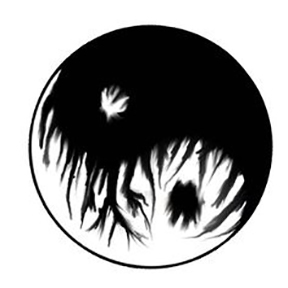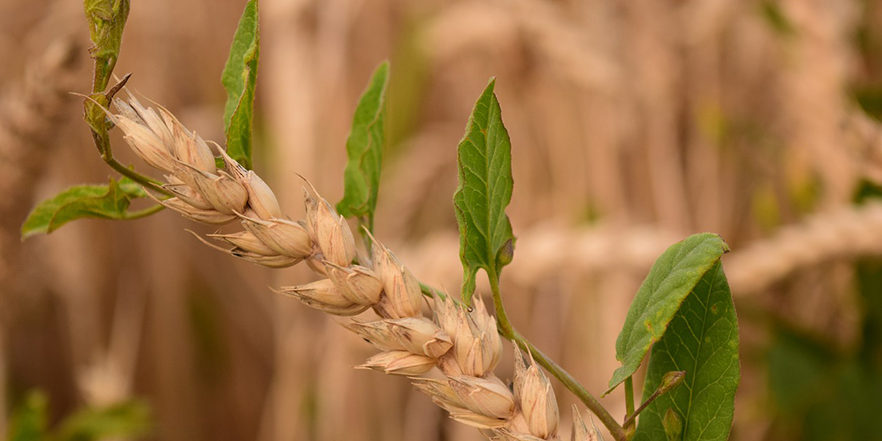Jesus proposed another parable to the crowds, saying:
“The kingdom of heaven may be likened to a man
who sowed good seed in his field.
While everyone was asleep his enemy came
and sowed weeds all through the wheat, and then went off.
When the crop grew and bore fruit, the weeds appeared as well.
The slaves of the householder came to him and said,
‘Master, did you not sow good seed in your field?
Where have the weeds come from?’
He answered, ‘An enemy has done this.’
His slaves said to him, ‘Do you want us to go and pull them up?’
He replied, ‘No, if you pull up the weeds
you might uproot the wheat along with them.
Let them grow together until harvest;
then at harvest time I will say to the harvesters,
“First collect the weeds and tie them in bundles for burning;
but gather the wheat into my barn.'”—Matthew 13:24–30
When in a time of socio-cultural, religious and political upheaval Jesuit Michael Moynahan wrote his “Litany of Contradictory Things,” he was reflecting on the tensile relationship of seeming opposites in the world around him. Inspired by the wheat and weeds parable in Matthew’s Gospel, his litany struck a chord with many around the world engaged in various struggles for liberation from conflict. It has been adapted many times over the past few decades to reflect historical and contextual updates, but the interpretive thrust is the same.
Like the “wheat and weeds” of today’s Gospel reading, many perceived polarizations strike us as untenable, highly unstable and prone to irreconcilable conflict. Like the mask-wearers and anti-mask wearers of the current COVID-19 crisis, it seems futile to hope for meaningful dialogue and reconciliation. However, holding “opposites” in tension allows for a tertium quid, a third thing, that may open to synthesis. Like the profound intra-dynamic energy flow of yin and yang, what often appears violently opposed is a matter of opening to a broader perspective. We are offered an invitation to step back, widen our perspective, and observe an unexpected, inter-dependent whole.
 While praying this Litany, please feel free to include your own “wheat and weeds” that fit your particular relational challenges, or the conflicts of our larger global context today:
While praying this Litany, please feel free to include your own “wheat and weeds” that fit your particular relational challenges, or the conflicts of our larger global context today:
Litany of Contradictory Things
by Michael Moynahan, S.J., Hearts on Fire, Praying with JesuitsWheat and weeds:
let them grow together.
Arabs and Jews in Palestine:
let them grow together.
Greeks and Turks of the Balkans:
let them grow together.
Catholics and Protestants of Northern Ireland:
let them grow together.
Pros and Contras of Central America:
let them grow together.
Documented and undocumented aliens:
let them grow together.
Immigrants and Native Americans:
let them grow together.
Blacks and Whites of South Africa:
let them grow together.
Sikhs and Hindus of India:
let them grow together.
Revolutionaries and reactionaries:
let them grow together.
Russians and Americans:
let them grow together.
Republicans and Democrats of America:
let them grow together.
Religious leaders who lay and lighten burdens:
let them grow together.
People of God who wound and heal:
let them grow together.
Rich and poor, humble and haughty:
let them grow together.
Those whose thinking is similar and contrary:
let them grow together.
Days of sparseness and days of plenty:
let them grow together.
Joys and sorrows, laughter, tears:
let them grow together.
Strength and weakness:
let them grow together.
Doubt and faith:
let them grow together.
Virtue and vice:
let them grow together.
Contemplation and action:
let them grow together.
The helpful and the helpless:
let them grow together.
All the contrarieties of the Lord:
let them grow together.
—Laura Weber, Prairiewoods associate director and retreats coordinator


